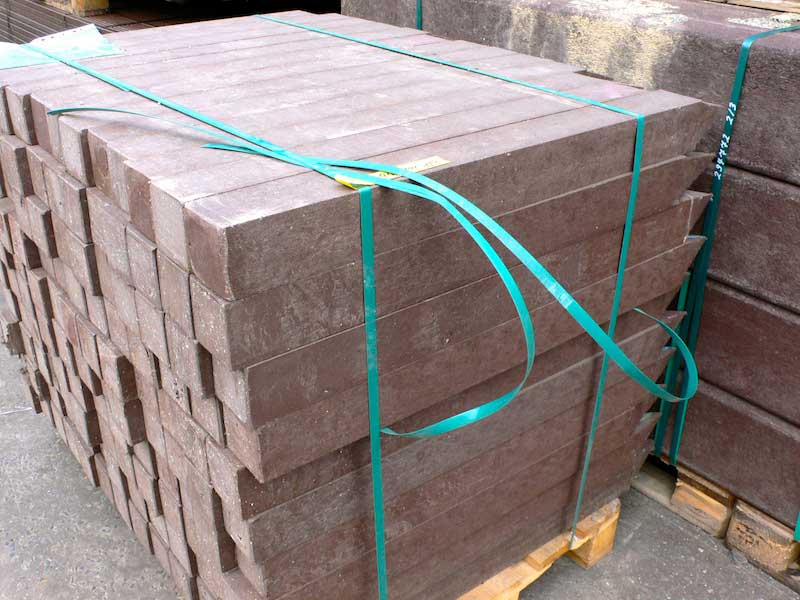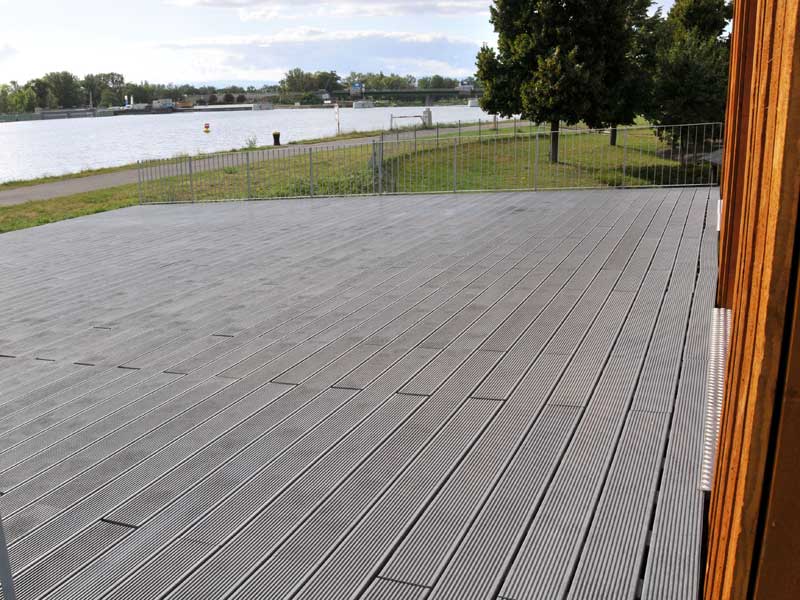The Benefits of Recycled Plastic in Construction

At Kedel, we’re committed to increasing awareness of the importance of using sustainable materials. Our recycled plastic can be used for many projects, especially in construction. Whether you’re looking to switch to more sustainable materials for commercial projects or want a greener option for your DIY endeavours, we have you covered.
Let’s take a closer look at the benefits of using recycled plastic in construction.
Why sustainability?
In recent years, there has been an increasing emphasis on sustainable practices, particularly in the construction industry. This trend is no surprise, considering the numerous benefits that using recycled plastic materials brings to construction projects. From reducing environmental impact to promoting energy savings, the advantages of using recycled plastic materials in construction are undeniable.
Why switch to recycled plastic construction materials?
One of the most significant benefits of using recycled plastic materials in construction is the reduced environmental impact. The construction industry is notorious for its contribution to pollution and waste generation. By incorporating recycled plastic materials into construction projects, we can help divert this waste from landfills, reducing the strain on our environment.
Recycling plastic materials involves processes such as sorting, cleaning, and transforming the plastic waste into usable materials. Doing so prevents these materials from ending up in landfills and potentially placing harmful chemicals into the soil and water. This reduction in landfill waste also helps to conserve valuable landfill space, which is becoming scarcer by the day.
Reducing the demand for new materials
Using recycled plastic materials in construction helps decrease the demand for new materials that often require the extraction of natural resources, such as petroleum, a non-renewable resource. By using recycled plastic materials instead, we can conserve these resources and prevent environmental degradation associated with their extraction. The production of new materials also involves significant energy consumption, from extraction to manufacturing and transportation. By using recycled materials, we can reduce energy consumption and the associated carbon emissions.
Furthermore, using recycled plastic materials in construction can also lead to cost savings. While there may be initial investments in equipment and facilities for the recycling process, the overall cost of using recycled plastic materials is often lower than that of new materials. Additionally, the availability of recycled plastic materials has increased over the years, making them more accessible and affordable for construction projects.
What can recycled plastic be used for?



Beyond the environmental and economic benefits, using recycled plastic materials in construction also offers practical advantages. Plastic materials have unique properties that make them suitable for various construction applications. For example, recycled plastic lumber can be used as a substitute for traditional wood in decking, fencing, and outdoor furniture. It is durable, resistant to moisture, and does not require regular maintenance or painting, making it an excellent choice for both homeowners and commercial builders.
Flexibility
Recycled plastic materials can also be moulded into various shapes, allowing for versatile design possibilities in construction projects. They can be used to create innovative architectural elements, such as decorative panels, facades, and interior finishes. This flexibility in design allows architects and builders to explore creative solutions while still maintaining the project's sustainability objectives.
Insulation
Using recycled plastic materials in construction also can potentially improve the overall performance of buildings. For instance, recycled plastic insulation materials can enhance energy efficiency and thermal performance. These materials have excellent insulating properties, reducing heat loss and minimising the need for heating and cooling. This not only contributes to energy savings but also promotes a more comfortable indoor environment.
Long-lasting
The durability and longevity of recycled plastic materials make them suitable for applications requiring strength and resilience. For example, recycled plastic can be used in the construction of road barriers, retaining walls, and drainage systems. These materials are resistant to corrosion and decay, ensuring the project's structural integrity for years to come.
Using recycled plastic materials in construction brings numerous benefits to the environment and the construction industry. Recycling plastic materials contributes to a more sustainable and eco-friendly construction sector by reducing waste, conserving resources, and promoting energy savings. It is clear that incorporating recycled plastic materials in construction is a win-win situation, helping us build a greener and more sustainable future. Whether you work in the construction industry or you’re looking for greener ways to undertake home improvements, Kedel’s recycled plastic construction materials can help you reduce your carbon footprint and increase your project potential!

.png)

 100% Recycled Plastic
100% Recycled Plastic Will Never Rot
Will Never Rot 25 Year Guarantee
25 Year Guarantee Low Carbon Footprint
Low Carbon Footprint